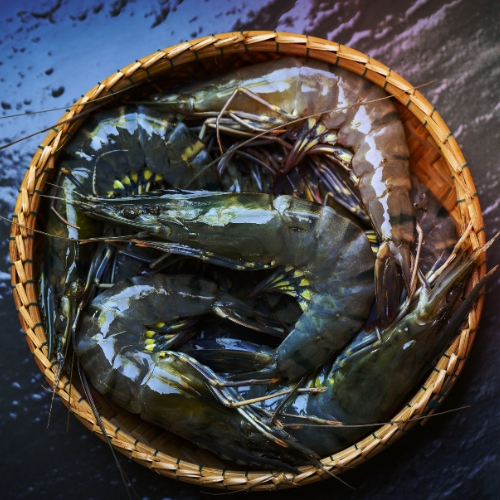Black Tiger Shrimp and Myanmar Seasons

Knowing the best times for shrimp farming helps get the most shrimp and keeps the farming sustainable. In Myanmar, the Black Tiger Shrimp, which is popular and valuable, grows the most during a particular season. This peak production happens in the rainy season, from May to August when the rain and conditions are just right for these shrimp to thrive.
How does the rainy season affect Black Tiger Shrimp farming in Myanmar?
The rainy season in Myanmar significantly affects Black Tiger Shrimp farming. Here are some key points:
- Peak Production: The rainy season from May to August is the peak production period for Black Tiger Shrimp in Myanmar.
- Environmental Challenges: Rainfall poses several environmental challenges for shrimp farming, including:
- Temperature: Rainwater is 5-6°C lower than the environment, which can reduce shrimp appetite by 10% for each degree Celsius lower water temperature.
- pH and DO: Rainwater has lower pH and dissolved oxygen (DO) levels, which can lead to unfavourable conditions for shrimp growth.
- Turbidity: Rain increases suspended solids, reducing sunlight penetration and affecting phototrophic populations.
- Halocline: Rainwater can form a halocline in ponds, causing salinity and hardness to decrease.
- Impact on Shrimp Farming: The rainy season leads to a chain of events that negatively impacts shrimp farming:
- Microalgae Crash: Rain causes a sudden drop in microalgae populations, which can lead to a lack of nutrients and poor water quality.
- Increased Bacteri: Rain increases the growth of heterotrophic bacteria, which can contribute to disease outbreaks in shrimp.
- Shrimp Migration: Shrimp tend to migrate to deeper areas with higher temperatures and salinity during rain, which can lead to increased density and reduced DO levels.
- Post-Rain Recovery: After the rain, shrimp farming operations typically recover as the temperature rises, pH and DO levels normalize, and shrimp populations increase with increased aquafeed.
Overall, the rainy season in Myanmar presents significant challenges for Black Tiger Shrimp farming, requiring careful management to mitigate the negative effects and ensure a successful crop.

